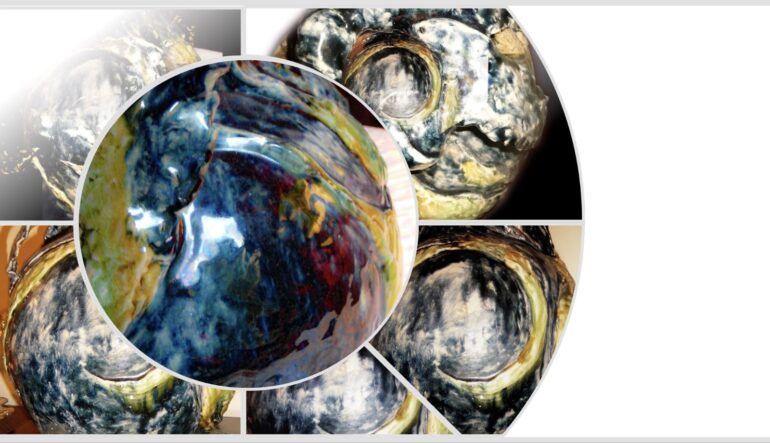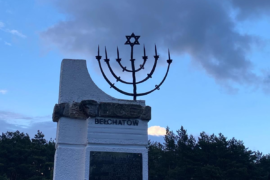Preface: Etymology
We know about roots. When terminology and discursive choices are involved, I sometimes turn to the Oxford English Dictionary.
Middle East, n.
Etymology: < MIDDLE adj. + EAST n., after FAR EAST n. and NEAR EAST n.: An extensive area of south-west Asia and Northern Africa, now esp. the area extending from Egypt to Iran. Also (esp. in early use): India and adjacent countries; an area perceived as lying between the Near East and the Far East.
1876 Zion’s Herald 11 May 146/1 Those nations of the middle East [i.e. Mesopotamia], formerly so little known to us, have come to be best known of any in those primitive ages.
1958 Ld. Vansittart Mist Procession vi. 82 We had [in 1909] none of the sloppy modernism which lumps everything from the Mediterranean to Bengal as Middle East… Persia, Baluchistan, Afghanistan, India were the Middle East.
1991 Guardian 1 Nov. 10/1 No venue had been fixed yesterday for the crucial stage of separate bilateral talks between Israel and the Arab parties to the Middle East peace process.
Eurovision, regional studies, statecraft, and the either/or
The thing about categories and Jews:
We are assigned by others to one or both, but then to one and not the other, held to shifting bars and changing criteria, until we ultimately are accused of being neither.
It’s precisely because we Jews don’t belong inherently to the either/or; we puzzle neat taxonomies.
Categories hold “the Jews” to a certain oppressive rigidity – to a fossilized placement in space and time.
Do we belong? Are we the fetishized “other”? Even when we claim we are “of” a place or region, we’re held to certain standards until we’re not, because we’re no longer considered a part of those places or regions anyway. We were never modern isn’t just a great title for a book.
Eurovision took place not so long ago. There are those within certain movements (decolonize or return to our authentic Jewishness, Jews are indigenous), and I am one of them, who advocate that we stop placing Israel in the “European”/“Western” sphere because “we’re Semites.”
So is that it? The end of our analysis?
Continuing down the analytic trail is the realization that to do this would be to replicate binaries and Cartesian dualities whereby it (we, a people objectified in stagnant place/time, denied coevalness) is either/or.
Let us push ourselves to re-examine, to question once again. Beyond where it’s comfortable at the surface, past the speech acts that occur as we declare we’re “decolonized”; as we proclaim we’re aligned with our “authentic” Jewishness.
Forcing a choice: Let us also learn from the recent past, the history of the creation of edot within the immigration logics of the Soḥnut (Jewish Agency) post-1948. Edot – often mistranslated as “ethnic groups”- imprinted with colonial, hierarchal and racialized classifications that enabled us, subjugated, to be deemed legible. Those that require the either/or.
Let us learn from the recent past, from Zionism’s creation of the “new Jew.”
Very little time has passed and we have reinvented ourselves and others within our community, we have shed associations and affiliations freely; we have imposed them upon others. We have created classes where they should not and never did exist.
Tell me you can’t see them – go on, tell me that’s in the past. Tell me to “get over it” and I will play you the painful ballads of Mizraḥi men and women living on the periphery.
If we are “Middle Eastern” then are we rejecting the possibility of being “European” or “Western”? In our attempt to demonstrate indigeneity, think carefully about our insistence on the “Middle Eastern”-ness of Am Yisrael.
Area studies, regional cultures and geography, born of a post-World War II world, an ideological all-encompassing tornado that carries with it remnants of the imperial while delineating a new world order that overlaps quite neatly with Western neocolonial interests.
Area Studies? Discursively, the regional authority and expertise the CIA has harnessed in its institutes of knowledge production disguised as neutral via the authority of academic affiliations does not serve us. And if not, so we must think:
Whose agendas and legacies are we perpetuating when we do this?
Because “Let’s Get Free” is much more than the title of a Dead Prez album.
Why force our truly global people to only belong to the “Middle East”? To clarify where we are from originally is just a few doors down the street from enforcing some to cut all associations and ties with one region in favor of the other.
What purpose does that serve? — if anything, it resembles a melting pot 2.0 with assimilationist undertones accomplishing an accelerated chipping away at the memory of the experiences of previous generations. Of our people. We are from the Diaspora and those places and cultures are real and beautiful and we are also in the land, our land.
We are both, not either/or.
We are not ourselves without our Diaspora cultures and histories – why try to erase that? Further, we should insist that histories of our former homes include and incorporate our peoples’ generational presence, or we continue at our own peril.
It’s hard to decide what’s worse – erasure of our historical and cultural traces, remnants we should’ve thought more carefully about shedding in our youthful enthusiasm as we sprinted home, or a new configuration whereby we must associate with one or the other, imprisoned within the exclusionary checkboxes of belonging, clinging to the binary, Cartesian dualities of East/West split.
Why force ourselves to fit into the frameworks of contemporary geographical regions? It seems to me that true decolonization involves a much more critical look at the constructs we naturalize in our first or second level analyses and framings.
We think it’s good, we think “yes! We’re not European, We’re Middle Eastern!” And we temporarily feel like we’re setting the record straight.
We’re decolonizing.
But actually we are once again – as in the ‘50s amid the ma’abarot, the blockim, the “melting pot” of olim – forcing one or the other, Europe (“the West”) or the Middle East, and thereby advocating a process of graduate disaffiliation with one or another regional construct.
What does that really do to free us at the end of the day?
Why not just… teach our peers and the next generations that we are located within the geographic-historico-political context of late capitalist nation-states, but within those contexts, we clarify that yes, we are in the Middle East?
And even then, what would that accomplish for us?
Every alignment requires some relationship with a category or modifier made familiar to us from flawed and deeply problematic systems and worldviews.
How can we free ourselves from this?
We need to imagine otherwise.





